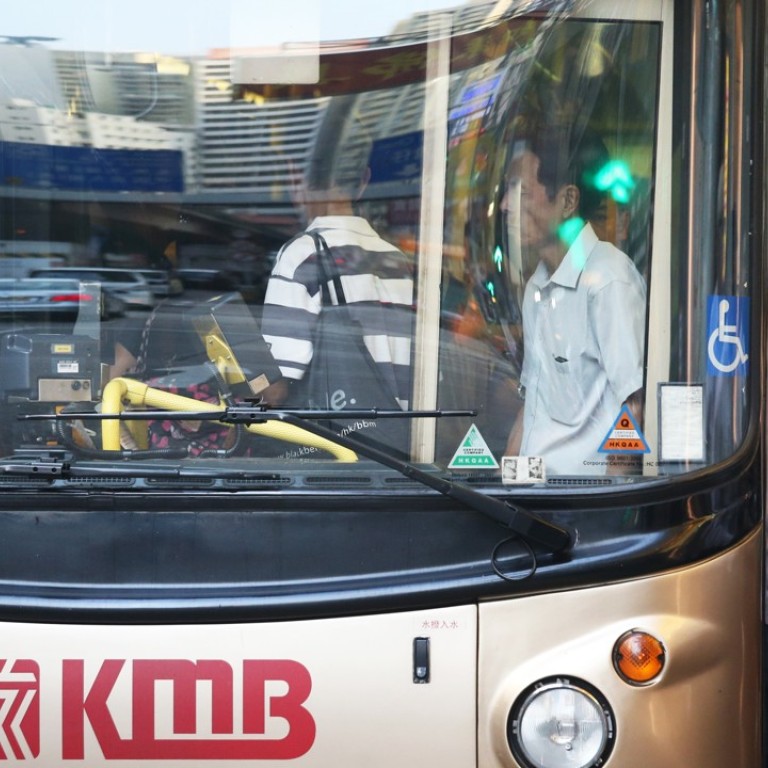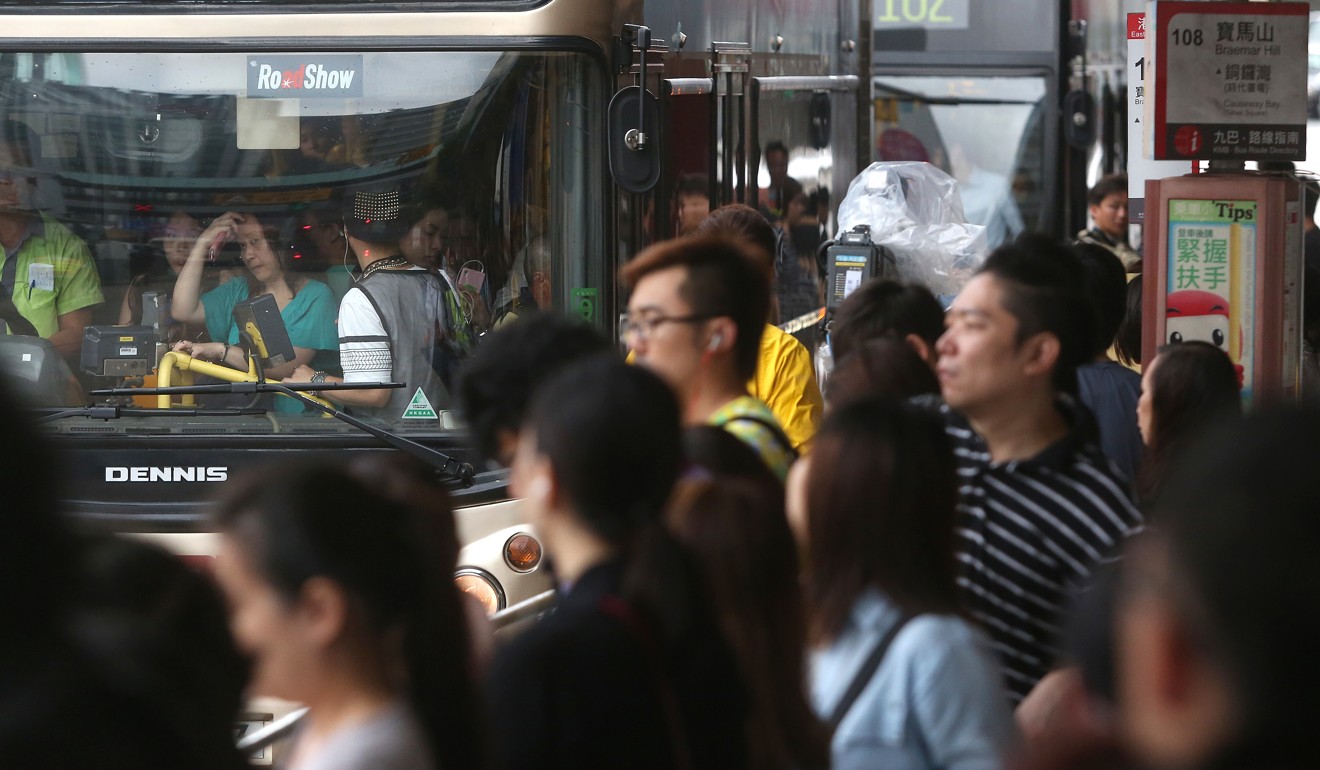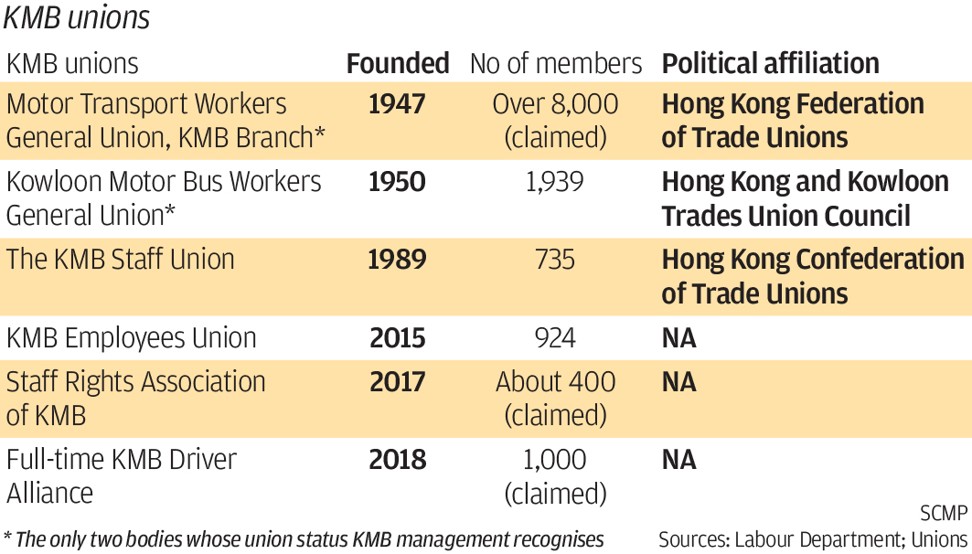
KMB union in Hong Kong demands pay rise of up to 27 per cent for bus drivers
KMB Employees Union called for an average 12 per cent salary increase for 8,300 full-time drivers but lower-paid ones should get much more than that
A workers’ union on Thursday demanded that Hong Kong’s largest bus company, KMB, give drivers a pay rise of as much as 27 per cent and improve conditions amid an annual salary review.
The KMB Employees Union, which has more than 900 members, called for an average 12 per cent pay rise for the company’s 8,300 full-time drivers and for an assessment-based allowance to be turned into a regular payment.
“Many drivers working 10 hours a day earn HK$18,000 (US$2,308) a month, so it’s not unreasonable to ask for more than 12 per cent, to HK$23,000,” union chairman Kwok Chi-shing said. That would represent a 27 per cent increase for these drivers.
His union is one of six labour groups that represent KMB workers.

Every year in early summer, the company’s management and the two unions it recognises – the Motor Transport Workers General Union, KMB Branch and KMB Workers General Union – hold talks on a pay review. Both unions have a pro-government background.
Pending the outcome of negotiations, a new pay deal for drivers would take effect on June 1.
Lai Siu-chung, director of the Motor Transport Workers General Union’s KMB branch – the biggest group with 8,000 drivers – said his colleagues asked for an 8 per cent pay rise and a six-month allowance based on drivers’ performance to be scrapped and replaced with a regular payment.
Hong Kong bus drivers plan work-to-rule action
Lai, whose group met bosses on Monday, said KMB promised a pay rise and that it would not deduct other overtime allowances to cover the salary increase.
“The management made some good gestures,” Lai said. “We don’t know when the next meeting is yet, but we have already been given some promises.”
Meanwhile, an industry-wide work-to-rule action is planned for Friday to protest a Transport Department decision to keep a guideline stipulating drivers could work up to 14 hours a day in special shifts. Lai said his union would not take part.
“There are many drivers who live on overtime allowances,” he said. “There are only about 500 buses out of thousands on special shifts and there are hours of breaks in between so that drivers can take a rest.”
How a deadly crash sparked a protest by Hong Kong bus drivers
The Federation of Bus Industry Trade Unions, which represents about 2,000 drivers from the city’s three largest franchised bus companies – KMB, Citybus and New World First Bus – organised the action and expected 4,000 to take part.
Kwok, of the KMB Employees Union, said his group would support the action and demanded talks with the department.
“They never consulted any drivers over the guideline,” he added.


